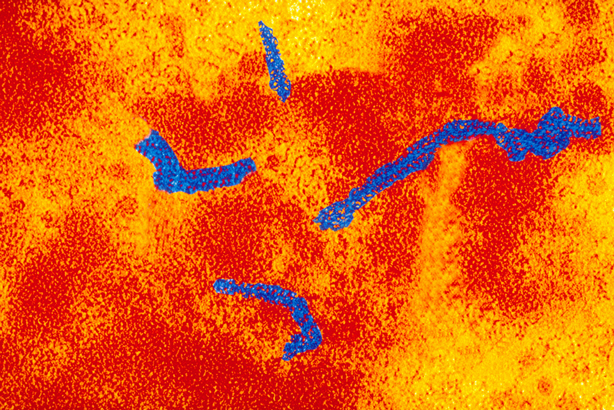By Valerie Franklin (The Cascade) – Email
Print Edition: March 26, 2014

If you were on UFV’s Abbotsford campus on March 13 or 14, you may have been exposed to the measles virus.
One possible case of measles in the UFV student residence is currently being investigated. The disease has also spread to BCIT in Burnaby. As of March 25, 228 cases have been confirmed in the Fraser Valley since the outbreak began.
Frankly, this is appalling. It’s the year 2014; measles was officially eliminated from Canada in 1998, thanks to a two-decade vaccination campaign. So why are we still struggling with a disease that can easily be prevented?
Because we’ve begun to see vaccination as an option rather than a life-saving necessity. The immunization rate has dropped to an average of 85 per cent in Canada — 10 per cent lower than the rate needed to achieve herd immunity, the state in which chains of infection are broken because so many individuals are immune.
Choosing not to vaccinate wouldn’t be so reprehensible if it only risked the health of the people making that choice. But it doesn’t. It also endangers babies who aren’t old enough to be vaccinated, the elderly, the immunocompromised, and those who can’t receive vaccinations for medical reasons like allergies. It prevents our communities from achieving herd immunity and opens the door to outbreaks even larger and more serious than our current one.
It hasn’t been long since measles was a common childhood disease in North America — and was occasionally deadly. According to the World Health Organization (WHO), measles killed 2.6 million people every year around the world before the vaccine became widely available. Surviving children were often left blind, deaf, or scarred for life.
Have we forgotten that already?
WHO estimates over two million deaths are prevented around the world every year thanks to immunization. Nothing else prevents contagious disease as safely and effectively as vaccines do. This is undeniable. There’s no good alternative to vaccination — not prayer, not alternative medicine, not a healthy diet.
Yet thanks to popular misinformation on the internet, enormous numbers of North Americans believe vaccines are cocktails of mysterious “toxins” that poison children, causing bowel disorders and autism. It’s been proven time and time again that the ingredients in vaccines are not toxic or poisonous — yet these unfounded and sensationalistic beliefs continue to spread, fuelled by celebrities such as former Playboy model Jenny McCarthy.
Putting aside the question of exactly how qualified a Playboy model is to discuss medicine, multiple scientific studies have found there is no evidence whatsoever that vaccines and autism are related. Andrew Wakefield, the doctor who originally proposed the connection between the two, appears to have deliberately left out vital information to make his research fit his hypothesis for his own personal gain. His now-discredited work has been retracted from the publications it originally appeared in, and his UK medical license has been revoked as a result of his shocking misconduct.
Despite years of vigorous research, absolutely no other scientific evidence has been found to support Wakefield’s hypothesis that vaccines cause autism — yet his influence has made its mark on the pseudoscientific community, which continues to tout his discredited research as valid evidence.
Consider the situation with some perspective: shaky, unfounded, fraudulent research has shown that there may be a connection between vaccines and autism.
Meanwhile, the connection between measles and death has unfortunately been proven many million times over.
Which would you choose?
It’s true vaccines don’t usually provide complete immunity against diseases, but they vastly lower the chances of contracting them. In the case of measles, there’s no question about the vaccine’s effectiveness; according to the Public Health Agency of Canada, the efficacy rate is almost 100 per cent if both necessary doses are administered.
The job of keeping ourselves, our children, and our communities safe is no one’s responsibility but our own. You’d think, living in the year 2014 with Google, Wikipedia, and centuries of scholarly research at our fingertips, that we would be smart enough to read the research for ourselves and make the sensible choice.
Anyone who denies the value of vaccination must never have lived in a society where diseases like measles, polio, and yellow fever are a real threat, or they’d never consider exposing themselves and their kids to that kind of horror.
Measles still kills. According to WHO, 122,000 people worldwide died from measles in 2012 — a huge improvement from the pre-vaccine days, but still averaging 14 measles deaths every hour.
Living in Canada, we rarely see the effects of contagious disease. It’s easy to forget what can happen when a serious disease hits a vulnerable, unimmunized community. Easy to forget what vaccines are protecting us from.
It’s a privilege to be as sheltered as we are. We don’t realize how good we have it.
I just hope it doesn’t take an epidemic to teach us.

